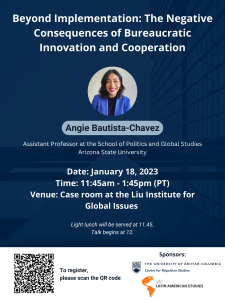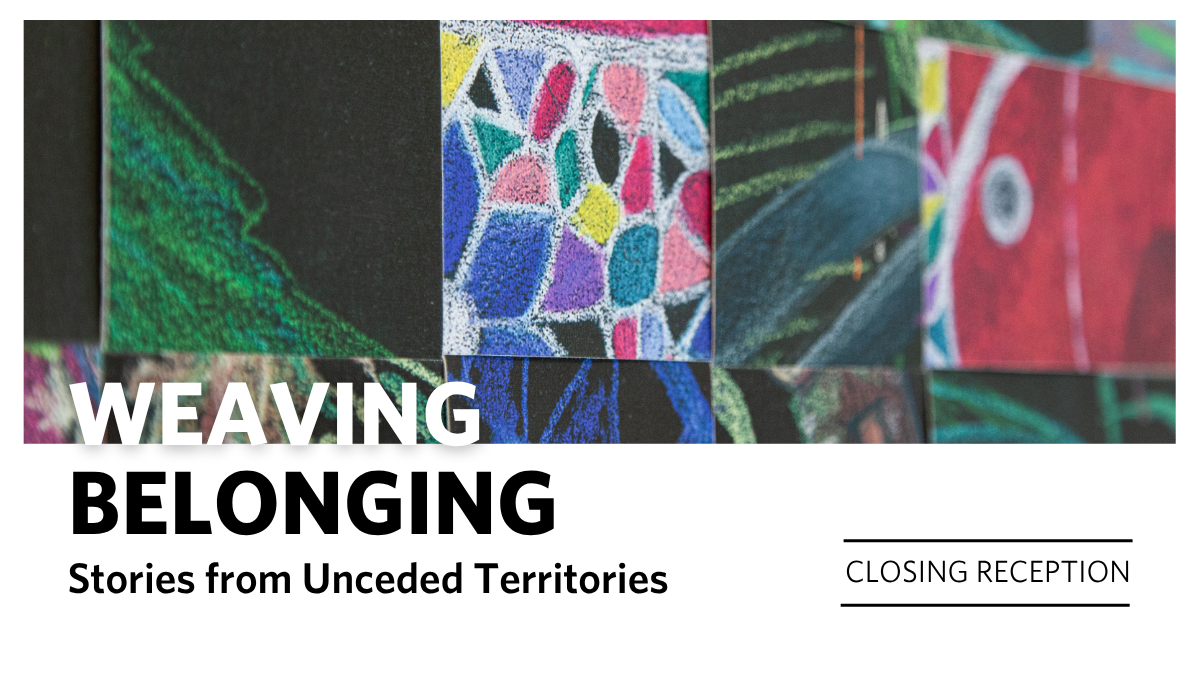Beyond Implementation: The Negative Consequences of Bureaucratic Innovation and Cooperation
Angie Bautista-Chavez
Assistant Professor at the School of Politics and Global Studies
Arizona State University
Co-organized by the
CMS Borders Research Group
and
UBC Latin American Studies Group


Free & open to the public. To register, fill out the RSVP form below.
Abstract:
Through an analysis of interviews with government officials and interest groups, archival materials, and observations between U.S. and Mexican government officials, this study finds that the U.S. immigration bureaucracy is not a passive player in the realm of immigration policy. This study argues that the U.S. immigration bureaucracy is a political institution comprised of politically capable actors who drive the externalization of U.S. immigration and border enforcement.
First, instead of a mere implementation body that translates the demands of presidents and legislators, the U.S. immigration bureaucracy is a profuse innovator. Immigration bureaucrats develop and adjust programs to regulate the movement of people, including would-be immigrants and asylum seekers, as they move towards the United States (prior to arrival). These regulatory innovations occur through administrative channels and prioritize the collection and sharing of biometric data across countries. While innovation within public bureaucracies is increasingly urged and rewarded, this study shows that regulatory innovations can reproduce existing racial/ethnic and class inequalities. The bureaucracy simultaneously innovates ways to make it easier for some individuals to enter the United States, while making it more difficult for others to cross borders or reach the United States.
Second, the U.S. immigration bureaucracy is not only a domestic institution. The U.S. immigration bureaucracy is also an active broker of international cooperation. While U.S. immigration policy is often unilateral and hostile to immigration-sending states, the U.S. immigration bureaucracy has strong organizational incentives for developing collaborative relationships with foreign governments. This collaboration, however, is self-interested and is not devoid of coercion. Intergovernmental collaboration does not only help the bureaucracy accomplish its mission and mandates. Collaborative relationships with foreign governments facilitate organizational expansion, whereby U.S. immigration bureaucrats can operate from abroad and participate in shaping global standards for managing migration.
The U.S. immigration bureaucracy does not only behave as an implementing body, but it also behaves as a profuse innovator and a broker of international collaboration. The implication is that the bureaucracy actively expands the regulatory power of the U.S. federal government over the lives of immigrants and border crossers.
Registration:
